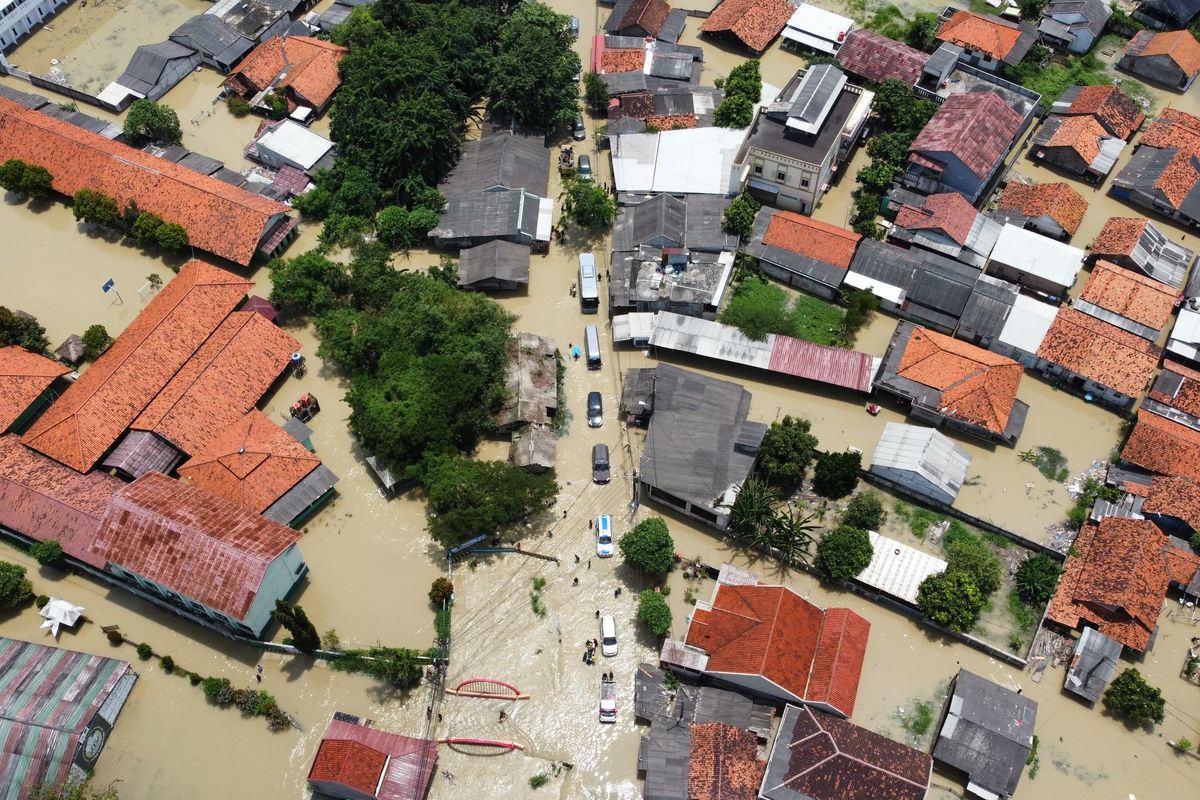Jabodetabek Floods and the Climate Change Management Bill

The flood disaster experienced by the people of Jabodetabek has caused various impacts such as material losses, health, and loss of life. The floods that often occur once every five years have not been resolved. According to the Research and Innovation Agency (BRIN), there are four main factors causing flooding in Jabodetabek, starting from climate change that causes extreme rain, rising sea levels, land subsidence, and changes in land use. This is exacerbated by the reduction in water catchment areas along the Ciliwung and Bekasi Rivers, the many changes in the function of River Basins (DAS), settlements that are not equipped with adequate drainage, and river overflows caused by intense rainfall in upstream areas.
The problem of flooding, which is one of the impacts of hydrometeorological disasters, is a real example of the phenomenon of climate change. This certainly requires special attention and multi-party cooperation to respond to the climate crisis. Joint action needs to be supported by legal products that are valid to be obeyed by all parties, such as the Draft Law (RUU) on Climate Change Management which is now included in the 2025 Priority National Legislation Program, and we need to monitor it together. This law will later regulate three things, namely: 1) Institutional aspects, strengthening the institutional framework that manages climate change policies in Indonesia and bringing together the interests and obligations of parties in each sector; 2) Financing aspects, which regulate financing in the use of the APBN and other financing mechanisms including foreign debt, carbon trading, carbon taxes and other schemes; 3) Justice aspects, where climate change management will of course refer to national interests and protect the Indonesian people from the threat of disasters and other losses due to climate change.
This Bill on Climate Change Management is also a follow-up to Indonesia’s position which has agreed and signed the Paris Agreement to the United Nations Framework Convention on Climate Change (Paris Agreement). Climate change control is a constitutional mandate that everyone has the right to live, and to have a good and healthy environment, so that people’s welfare is realized that pays attention to environmental and social aspects. The negative impacts of climate change require control and handling that should no longer be a burden on the state but a necessity so that it becomes a sustainable national agenda. The Paris Agreement is legally binding and is determined by all countries that have committed to implementing it. The main components of the agreement are to reduce geothermal heat to 2 degrees Celsius, increase the ability to adapt to the impacts of climate change towards climate resilience and low-emission development without threatening food production, and prepare policies, funding schemes, and incentives to move towards low-emission and climate-resilient development.
The role of each sector such as food, forestry, infrastructure development, real estate, and other sectors will refer to the Climate Change Management Bill which will be ratified later. The target is for all levels of society to support and obey the applicable legal regulations so that it is hoped that in the next five years, the risk of flooding and other disasters due to climate change will be reduced, and mitigation and adaptation actions in the community can be carried out massively.
Written by: Jenni Irene Connie
Edited by: Fauzan Ramadhan

